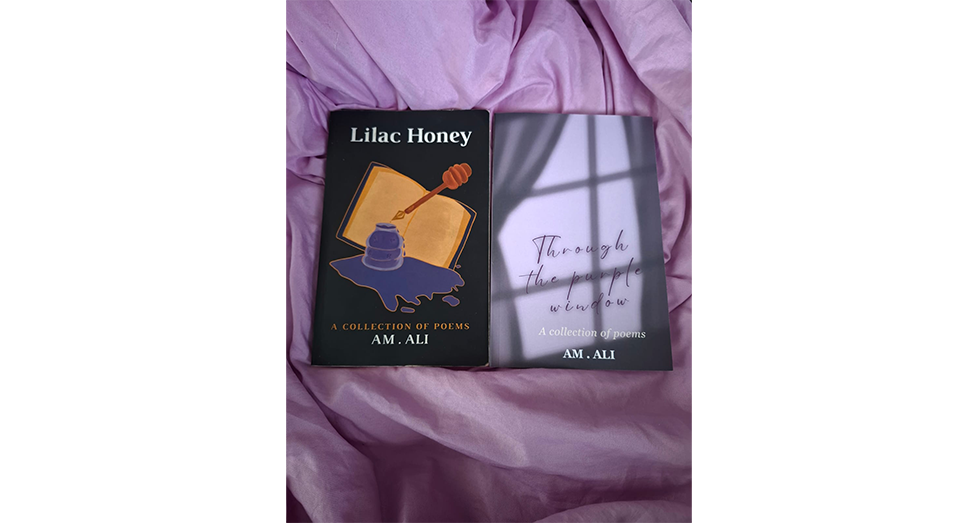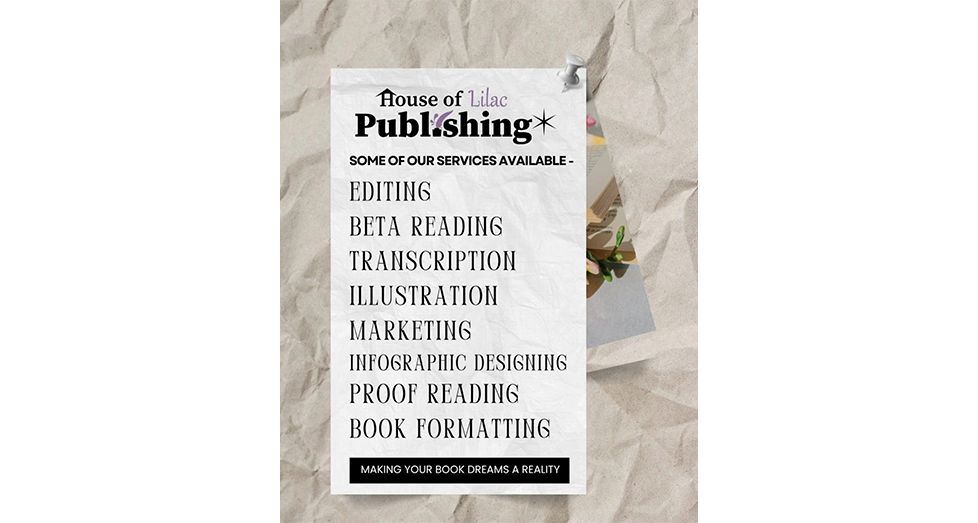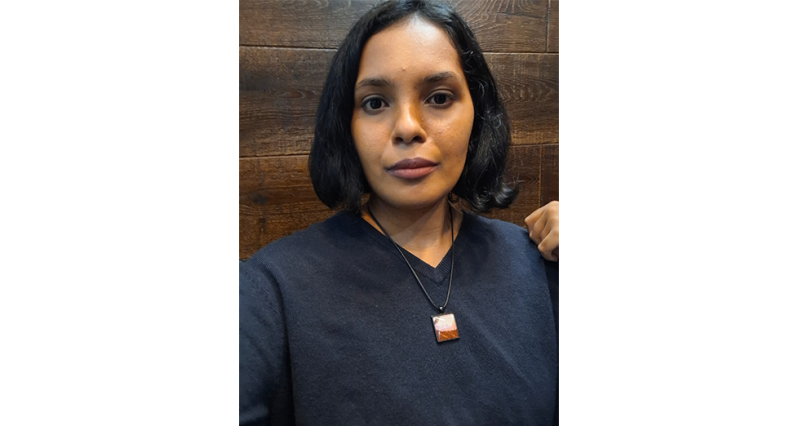TRINIDADIAN poet and publisher behind House of Lilac, Aminah Ali, speaks on her creative origins, navigating identity, and shaping new spaces for Caribbean writers to be heard.
Trinidad and Tobago writer and publisher Aminah Ali began writing poetry out of curiosity and self-expression, seeking to make sense of identity, faith, and belonging. What started as short musings on Wattpad and Instagram grew into two published poetry collections and the founding of House of Lilac Publishing, a space dedicated to amplifying new voices across the Caribbean. In an interview with Pepperpot Magazine this week, Aminah highlights the challenges young Caribbean writers like herself face, her work and publishing house, and what could be the next step in creating a Caribbean literary community.

Aminah’s love for words and writing began early. When she was still in school, Aminah would spend long hours expressing herself through words in her room. Coupled with her love for photography, Aminah began posting her work online. Today, Aminah’s work has blossomed, and she is one of the loudest young voices in Caribbean literature.
“So it became a thing where I’d post photographs, anything artsy-looking and paired with a quote. And from that, I was able to write poetry, some poetry on Wattpad, poems. It wasn’t good because at that time, I didn’t really know how to write poetry. And I didn’t really study that much literature, only up to Form 3 in secondary school. However, it prompted me to start an Instagram account with the same idea of putting photographs and pairing it with my own words, like quotes, at the beginning. And I started to build from there.”
Aminah’s origins and background continue to have a profound impact on her work. Growing up in Trinidad and Tobago, she used her words to understand her family, community, country, and herself. Her first published works, Through the Lilac Window and Lilac Honey, were collections of poems that addressed a variety of themes, among the most significant and personal being family.
“In terms of my upbringing has influenced my writing as well, I include my family stuff, like my grandmother. She’s from Venezuela. And, I dedicated a poem to her. I have never met her, but, you know, they are my bloodline. So, I dedicated a poem to her with her name, her full name, in my second collection,” she said.
Aminah says her writing process has not changed very much over the years. She follows a simple routine of free-writing, coupled with her use of dictionaries and thesauruses, to find the perfect words that give her poetry a unique style.
“My writing process, I would say, is nothing too strict or anything like that, because at the moment, yes, I write poetry. I free-write a lot, however, too. I use a dictionary, I use a thesaurus, I search up Google words, usually, if there’s something that I think that I want, I would choose a word.” She added, “I use big words in my poetry, and some people, they tend not to like that. But that is me, how I write in terms of me wanting to expand my craft and whatever, make it interesting,” she added.

In 2023, Aminah launched House of Lilac Publishing, a venture she says is focused on new voices. House of Lilac saw massive support from the beginning and continues to be a stepping stone rather than a hurdle for young Caribbean writers.
“The creation of House of Lilac was the fact that people were coming to me to ask me how I do this, how I do that, how do I make a book, and I just wanted to help people. So that’s how House of Lilac was made, and I formulated a team who were in departments like illustration, editing, infographic, and designing.” She added, “And even to myself, it took me years to reflect on how the publishing works, only after I published my first poetry book, then I understood more things, and in terms of building a network with other local authors.”
While House of Lilac brings one major hurdle to the forefront, Aminah says Caribbean writers face a number of other challenges. Marketing is one of the biggest, says Aminah. While the region is full of young creatives, their work may never truly be seen, simply because of a lack of marketing and publicity.
“Marketing is one of the biggest problems. A lot of them, some of them, I mean, obviously, yes, they may not know how to market, and then some of them, when they put out the book, they just leave it there, you know, but they want to get sales. Marketing is a lot of recycling, but also with reinvention,” she added. “There are a lot of good books out there, especially self-published. Some people might not want to buy self-published books because they will have errors in them. But some people, they have their own team, and these books are so good too.”
But there is good news. With the introduction of new literary festivals, inter-Caribbean literary support is growing, and writers like Aminah say it’s more vital than ever.
“I think inter-Caribbean collaboration is something so important now, especially to make it as a hub, a growing hub. For me, I think even being a part of the BOCA lit fest opened my eyes.” She added that this regional support plays a role in learning as well as marketing. “And when I started marketing Lilac Honey, I realised there were other authors just like me. We became friends. If we network and help each other out in a good way, we are able to formulate a community through that. However, it’s still growing.”
Aminah hopes that her work will continue to inspire and move. Her work is often described as relatable and raw, qualities Aminah says she aims to convey. Through real-life themes and bold words, she hopes to make everyone feel just a bit less alone in this ‘universal struggle.’
“I think the biggest thing for me is resonance. Even as a person, we have our own mundane life, and then we have our struggles and obstacles. It may be universal. Even though me and you, we go into a struggle, it may not be at the same level. But we understand to have empathy and ways of coping with it.” She added, “I would refer to poetry as a way of resonance and coping, to feel like you’re not alone. To be alone, it does be hard for some people. Sometimes you need reminders of who you need to be or who you need, who you might as well put you across.”
Currently, Aminah is working on a few new ventures, with a third poetry book, a folklore-inspired novel, and a House of Lilac anthology all under development. Although novels are new territory for Aminah, she is excited to try her creative hand at something slightly different.
“I don’t have a title yet. So I will start with the novel first. It’s not a werewolf book; it has little sprinkles of local folklore characters that I want to incorporate in it.” She added, “I’m currently working on my third poetry book, so hopefully that might come out next year. And House of Lilac has an anthology coming soon, hopefully by December or January.”



.jpg)








